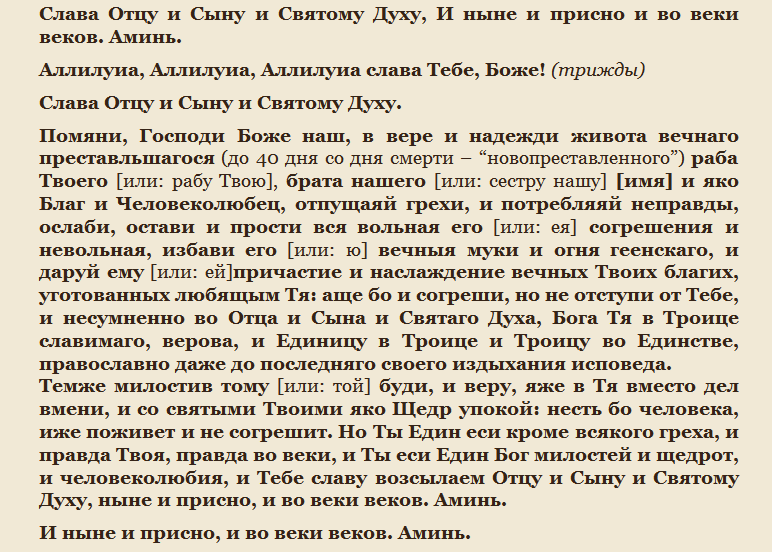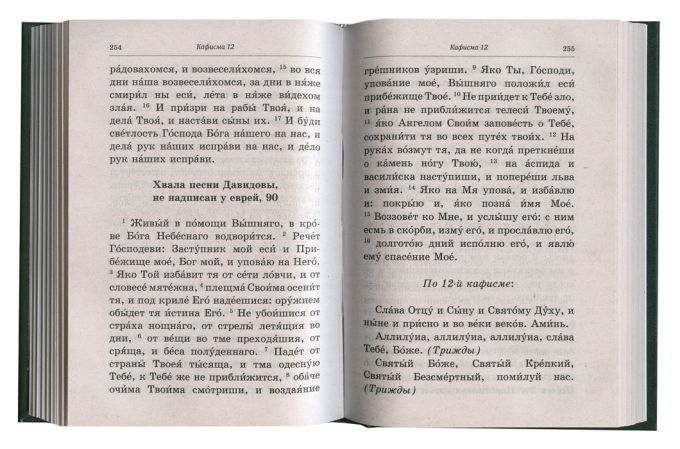Psalter - the book, which is the case of the Holy Scriptures of the old Testament. There are 150 Psalms (hence the appropriate name), which are the prayers of the Lord. The author of the Psalms I think of king David, but some of the prayers were composed and other rulers of ancient Israel.
The Psalms became widespread for the use in Apostolic times. In Russia since ancient times this old Testament book was used as prayers as worship and home prayer. Currently, the services of the Church also include prayers from the book of Psalms.
In the Orthodox culture, there is a pious tradition to make the reading of the Psalter for the dead in memory of them. The whole of the old Testament the book is divided into twenty-capism, a complete reading may take up to five hours of time, so prayer for the dead with the help of this book is a special labor of living people in memory of the deceased. Reading the Psalms is performed as for laity, deacons and monks. Exercise reading can any pious Christian.
It is customary to read Psalms before burial of the deceased. Preferably, the prayers lasted continuously, however, in the absence of such feature is to read at least a few capism per day, or to change recitation. In the prayers of the Psalter can be traced to the hope of man in God's mercy, the Holy texts of the consolation of relatives and friends of the deceased person.
The book of Psalms can be read for forty days after the death, special attention is paid to the days of commemoration: the ninth and fortieth. In addition, the book of Psalms for the dead can be read on the anniversary of the death of, or on any other day, because prayers to the Lord for forgiveness of sins of the dead can ascend a Christian at any time.
The order of reading the Psalter for the dead simple. In the prayer before the reading of the Psalter is based on the special prayer of the publican, after which reads "o Come, let us worship" and the text carismi. All kathisma are divided into three "Glory." The peculiarity of the reading of the Psalter for the dead is to add a special funeral prayer at each "slavnik". Thus, when the text kathisma reader sees the inscription "Glory", to read as follows:

Then continue reading the Psalms of carismi. There is a practice according to which, after the funeral prayer pronounced Marian prayers "hail Mary". On the third "Glory" to pronounce just "Fame" "And now" triple "Alleluia, Alleluia, Alleluia thank You, God" and the prayer of the departed. Then read the Trisagion for our father, special troparia, napisaniya at the end kathisma, and also a specific prayer.
The beginning of each new carismi again accompanied by a reading of "o Come, let us worship":

After the reading of the Psalter or more capism put special prayers, published in the prayer book "on the reading of the Psalter or more capism".
It should be noted that if a person is not able to read the Psalter for the dead completely, it will bother at least reading the 17th kathisma, as this part of the Psalter is read at the memorial service used during the prayers of remembrance of the dead).
The position of praying while reading the Psalms must be standing. The rest of the people during the prayers can sit, if you have physical weakness.
If the Psalter is recited before the coffin of the deceased, the reader stands before the feet of the deceased. When reading the Psalms, it is customary to burn a candle or lamp in front of icons. During the reading of the Psalter must focus on prayer and turn to the Lord with humility, reverence and devout attention to the sacred texts.
